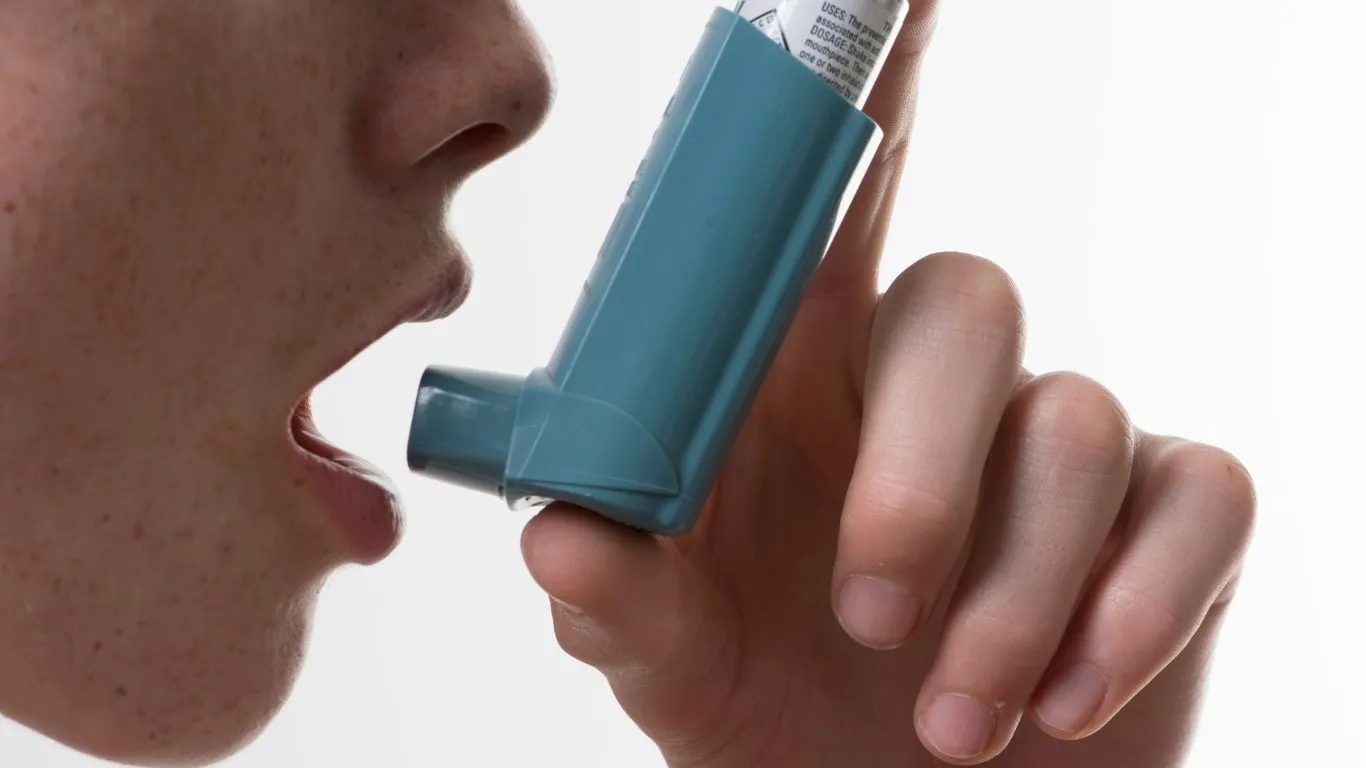Discover How to Use Eucalyptus for Asthma Relief Effectively
As a Pulmonary Nurse, I’ve seen firsthand how challenging asthma can be for so many people. The constant wheezing, tightness in the chest, and difficulty breathing can truly disrupt daily life. Over the years, I’ve learned that asthma management is a combination of medication, lifestyle changes, and, in some cases, natural remedies. One remedy that has piqued my interest and the interest of many of my patients is eucalyptus. You might be wondering, “How to use eucalyptus for asthma relief?” Let’s dive into this powerful plant and explore how it can become a helpful tool in managing asthma symptoms.
What Is Eucalyptus and Why Is It Useful for Asthma?
If you’ve ever encountered eucalyptus, you’re likely familiar with its fresh, minty aroma. It’s not just a pleasant scent used in various wellness products but also a plant with some serious medicinal properties. The leaves of the eucalyptus tree, commonly found in Australia, contain an essential oil known for its soothing and healing effects. When used properly, eucalyptus oil can be a game-changer for those who suffer from asthma. The active compound in eucalyptus oil, eucalyptol (also known as 1,8-cineole), is what gives it its therapeutic benefits. This compound is known for its anti-inflammatory and bronchodilating properties, which can help reduce asthma symptoms by opening up the airways and making it easier to breathe. This is exactly why eucalyptus can be a great addition to asthma relief strategies.

How Does Eucalyptus Oil Help with Asthma?
The soothing effects of eucalyptus oil on the respiratory system are undeniable. When you inhale the vapor or apply diluted eucalyptus oil topically, it can help to:
- Open up airways: Eucalyptus oil works as a natural bronchodilator, which helps expand the airways, making it easier to breathe. This is particularly useful during an asthma attack when the airways constrict.
- Reduce inflammation: Asthma often causes inflammation in the airways, which makes it difficult to breathe. Eucalyptus has anti-inflammatory properties that help reduce swelling and irritation in the lungs and airways.
- Relieve congestion: If asthma is accompanied by mucus buildup or congestion, eucalyptus can help clear the airways, allowing for better airflow and easier breathing.
- Calm the respiratory muscles: Eucalyptus has been shown to help relax the muscles surrounding the airways, which can reduce the intensity of asthma symptoms.
While eucalyptus oil can offer relief, it is essential to remember that it should be used cautiously. Like any natural remedy, it’s important to know how to use it effectively and safely.
How to Use Eucalyptus for Asthma Relief
Now that we know eucalyptus oil can be beneficial for asthma, let’s talk about how to incorporate it into your routine. There are several ways to use eucalyptus, and I’ve seen success with a variety of methods among my patients.
1. Steam Inhalation
One of the most effective ways to use eucalyptus for asthma relief is through steam inhalation. This method helps deliver the therapeutic benefits directly to the airways, providing immediate relief. Here’s how you can do it:
- Boil a pot of water and remove it from the heat once it’s simmering.
- Add a few drops (3–5) of eucalyptus essential oil to the water.
- Lean over the pot and cover your head and the pot with a towel to trap the steam. Make sure you keep a safe distance to avoid burns.
- Close your eyes and breathe deeply, allowing the steam and eucalyptus vapor to enter your airways.
- Inhale the steam for about 10–15 minutes, taking breaks if needed.
This method can help relieve congestion, reduce inflammation, and open up the airways. I recommend doing this once or twice a day, especially if you’re feeling a bit more congested or experiencing mild asthma symptoms.

2. Eucalyptus Oil Diffuser
If you’re not a fan of steam inhalation, you can also use a diffuser to spread eucalyptus oil throughout your room. This method allows the vapor to fill the air, making it easier for you to breathe. Here’s how to do it:
- Fill your diffuser with water according to the manufacturer’s instructions.
- Add a few drops of eucalyptus essential oil (about 3–5 drops is a good starting point).
- Turn on the diffuser and let it run for about 30–60 minutes.
- Make sure the room is well-ventilated to avoid overpowering the scent.
Using an essential oil diffuser throughout the day, especially in the evenings, can help improve air quality and provide ongoing relief. Many of my patients find this method soothing, especially before bed, as it promotes better breathing during sleep.
3. Topical Application
Topical application of diluted eucalyptus oil can also provide relief. Eucalyptus has soothing properties that, when applied to the chest or back, can help open up the airways and relieve tightness in the chest. However, it’s essential to dilute the oil before applying it to the skin. Here’s how:
- Mix 1–2 drops of eucalyptus essential oil with a tablespoon of carrier oil, such as coconut oil or almond oil.
- Massage the mixture gently into your chest or the back of your neck.
- You can also rub the mixture onto your wrists for relief throughout the day.
This method works best when you’re feeling a bit of tightness or discomfort in your chest, as the eucalyptus will help loosen the muscles and reduce inflammation.

4. Eucalyptus Bath
If you enjoy taking baths, adding eucalyptus oil can provide a relaxing and therapeutic experience. A eucalyptus bath not only helps with asthma relief but also promotes overall relaxation, which is vital for managing stress (a common asthma trigger). Here’s how to make the most of your eucalyptus bath:
- Add 5–10 drops of eucalyptus essential oil to your bathwater.
- Swirl the water around to mix the oil, and soak in the bath for about 20–30 minutes.
- Inhale the steam and allow the soothing properties of the eucalyptus oil to open up your airways.
A eucalyptus bath is perfect for those moments when you want a little self-care while also relieving asthma symptoms. Plus, the calming effects on the mind and body can help reduce stress and improve sleep quality.
Remember, eucalyptus is a helpful natural remedy, but it’s important to consult your healthcare provider before adding any new treatments to your asthma management routine. As with any natural remedy, it’s essential to use it in moderation and monitor for any allergic reactions or sensitivities. Now that you have a better understanding of how to use eucalyptus for asthma relief, you’re one step closer to finding a natural solution that works for you!
Incorporating eucalyptus into your asthma management plan can be incredibly effective, but there are still a few key things to remember as you start using this natural remedy. It’s not just about using eucalyptus oil in one way; there are various methods that might work best depending on your symptoms and preferences. Plus, as much as I’ve seen the positive effects of eucalyptus on my patients, I always encourage a careful, informed approach when experimenting with any natural remedy. In this section, we’ll dive deeper into how to safely and effectively incorporate eucalyptus into your daily routine, as well as some important precautions and tips for maximizing its benefits.
Precautions When Using Eucalyptus for Asthma Relief
While eucalyptus is generally considered safe when used properly, it’s always important to take precautions, especially when dealing with something as serious as asthma. I’ve seen patients make the mistake of overusing essential oils or not diluting them properly, which can lead to irritation or other unwanted side effects. So, let’s talk about the dos and don’ts of using eucalyptus for asthma relief.
1. Always Dilute Eucalyptus Oil
One of the most important things I emphasize to my patients is the importance of dilution. Essential oils are potent, and undiluted eucalyptus oil can be too harsh on the skin, causing irritation or allergic reactions. When using eucalyptus oil topically, always mix it with a carrier oil, such as coconut oil or olive oil, to reduce the risk of skin reactions. I recommend a ratio of 1–2 drops of eucalyptus oil to one tablespoon of carrier oil.
For steam inhalation or diffusion, it’s essential not to use too much eucalyptus oil at once. A few drops go a long way. This is particularly important if you’re sensitive to strong scents or oils. I’ve had patients who became lightheaded or dizzy from overdoing it, so starting small and adjusting according to your comfort is key.
2. Avoid Direct Contact with Eyes and Mucous Membranes
It’s also crucial to avoid getting eucalyptus oil in your eyes or other sensitive areas. Essential oils are strong, and they can cause irritation or even burning sensations if they come into direct contact with mucous membranes. If you’re using eucalyptus oil for steam inhalation, be sure to keep your face a safe distance from the hot water and cover your head with a towel to trap the steam without leaning directly over the pot.

3. Test for Allergies or Sensitivities
Before using eucalyptus oil regularly, it’s a good idea to do a patch test on a small area of skin to check for any allergic reactions. Apply a diluted amount of oil to the inside of your wrist and wait 24 hours. If there’s any redness, itching, or irritation, discontinue use. In my experience, sensitivities to eucalyptus oil are rare, but it’s always better to be cautious, especially when trying it for the first time.
4. Use Eucalyptus with Caution in Children and Pregnant Women
When it comes to children and pregnant women, eucalyptus oil should be used with extra care. For young children, especially those under 2 years old, eucalyptus oil may be too strong and could lead to breathing problems or skin irritation. I always recommend that parents consult with a healthcare provider before using essential oils around children. The same goes for pregnant women, as eucalyptus oil can sometimes cause uterine contractions or other adverse effects. Always check with your doctor first to ensure it’s safe for you.
Other Natural Remedies to Complement Eucalyptus for Asthma Relief
While eucalyptus can be incredibly effective, it’s often most beneficial when used in combination with other natural remedies and lifestyle changes. As a pulmonary nurse, I’ve seen firsthand how a holistic approach to asthma management can work wonders. Let’s take a look at some other natural options that can complement eucalyptus and help manage asthma symptoms.
1. Ginger
Ginger is a powerhouse when it comes to respiratory health. Known for its anti-inflammatory and antioxidant properties, ginger can help reduce inflammation in the airways and may even help prevent asthma attacks. I’ve recommended ginger tea to several of my patients, and many have reported feeling more at ease after drinking it regularly. To make ginger tea, simply slice fresh ginger and steep it in hot water for about 10 minutes. You can add honey for sweetness, and it’s a soothing, calming drink, especially during colder months.
2. Turmeric
Another natural remedy that pairs well with eucalyptus for asthma relief is turmeric. This golden spice contains curcumin, a compound with powerful anti-inflammatory effects. When inhaled, it can work to reduce the inflammation in the airways, similar to eucalyptus oil. I often suggest incorporating turmeric into your diet—whether in curries, smoothies, or even turmeric lattes—as part of a broader anti-inflammatory diet. Turmeric supplements are also available if you prefer a more concentrated form. But remember, curcumin has a low bioavailability, so pairing turmeric with black pepper can help your body absorb it better.
3. Honey and Lemon
Honey and lemon are both natural ingredients that can soothe the throat and help reduce coughing, which is common among people with asthma. I’ve seen many patients make a simple but effective remedy by mixing a teaspoon of honey and a squeeze of lemon juice in warm water. This drink helps hydrate the body, clear mucus, and provides a mild anti-inflammatory effect. Honey’s antibacterial properties may also help with any throat infections that can trigger asthma symptoms, while lemon’s vitamin C boosts immunity. This drink is soothing and can be enjoyed multiple times a day for relief.
4. Breathing Exercises and Yoga
While natural remedies like eucalyptus oil can provide relief, lifestyle changes like breathing exercises and yoga should not be overlooked. Both have been shown to improve lung function, reduce stress, and promote overall better breathing habits. I’ve seen amazing results in patients who regularly practice controlled breathing techniques, such as pursed lip breathing, and those who incorporate yoga into their routines. Yoga, with its focus on breath control and gentle movement, can help strengthen the diaphragm and reduce the frequency of asthma symptoms. Combining eucalyptus oil with mindful breathing exercises can amplify the effects and provide even better relief.

5. Stay Hydrated
Staying hydrated is often overlooked, but it’s so important for managing asthma. Dry air can worsen asthma symptoms, leading to more irritation in the airways. Drinking plenty of water helps to keep the airways moist and can prevent the mucus from becoming thick and sticky. I always tell my patients to drink enough water throughout the day, especially during the winter months when the air tends to be drier. Warm liquids, such as herbal teas or broths, are particularly soothing and can help ease congestion.
Using Eucalyptus Oil Alongside Traditional Asthma Medications
One of the biggest questions I get as a nurse is whether natural remedies like eucalyptus oil can replace traditional asthma medications. The answer is no—eucalyptus oil should never replace prescribed medications or emergency inhalers. It’s important to remember that eucalyptus can be a supportive tool in your asthma management, but it’s not a cure-all. I always stress the importance of continuing with your doctor’s recommended treatment plan, whether that involves rescue inhalers, daily medications, or even allergy medications if allergies are a trigger for your asthma.
That being said, using eucalyptus oil in conjunction with your prescribed treatment can be beneficial. It’s about finding that balance and understanding what works best for you. Some of my patients have successfully incorporated eucalyptus oil into their asthma management plans, reporting fewer flare-ups and a greater sense of control over their symptoms. Just be sure to talk to your healthcare provider before adding eucalyptus or any other natural remedy to your routine. Together, you and your doctor can create a comprehensive asthma care plan that works for your unique needs.

As you move forward in using eucalyptus for asthma relief, always keep in mind that it’s about finding what works best for you. Eucalyptus, along with other natural remedies and lifestyle changes, can become part of a successful, holistic approach to managing asthma and improving quality of life. Keep experimenting, stay informed, and most importantly, listen to your body.
As we wrap up this exploration of how eucalyptus can be a valuable addition to your asthma management plan, it’s important to emphasize that every individual’s experience with asthma is different. While eucalyptus may work wonders for some, it may not be the answer for everyone. This is why, as a Pulmonary Nurse, I always stress the importance of finding a holistic approach that combines medical advice, lifestyle changes, and, when appropriate, natural remedies. We’ve covered a lot of ground in terms of methods, precautions, and complementary treatments. But there are a few more important considerations and tips that can help you fully benefit from incorporating eucalyptus into your routine.
When to Seek Professional Help
Even with all the benefits that eucalyptus oil offers, it’s essential to remember that asthma can be a serious condition that requires medical attention. I’ve had patients in the past who were hesitant to seek professional help because they felt that their symptoms were “under control” with natural remedies like eucalyptus. While these remedies can be a helpful support tool, they should never replace medical interventions. If your asthma symptoms persist or worsen despite using eucalyptus or other natural remedies, it’s important to reach out to your healthcare provider. There are many types of asthma, and your treatment plan may need to be adjusted based on your symptoms and triggers.
When to Seek Help
- If you experience frequent or severe asthma attacks that do not improve with your rescue inhaler.
- If you notice that your breathing becomes increasingly difficult, even when using your prescribed medication.
- If you begin to feel lightheaded, dizzy, or faint during an asthma attack.
- If you start to wheeze more often, even when you’re not experiencing an attack.
- If your asthma symptoms interfere with your ability to perform everyday activities.
Asthma is not something to take lightly, and no natural remedy—no matter how effective—can substitute for professional medical care. Always be proactive about your health and seek professional advice when needed.
The Importance of Consistency and Monitoring Your Asthma Symptoms
When I recommend eucalyptus to my patients, one of the key points I emphasize is the importance of consistency. Just like with any natural remedy, the results won’t be immediate. It takes time to see how your body responds to eucalyptus and how it works in conjunction with your other treatments. Regular use of eucalyptus through methods like steam inhalation, diffusion, or topical application may lead to gradual improvement, but it’s crucial to stay patient.
In addition to consistency, monitoring your asthma symptoms is a vital part of the process. Keeping track of your symptoms—how often they occur, their severity, and the triggers—can help you and your healthcare provider assess the effectiveness of your treatment plan. I always recommend keeping a symptom diary or using an asthma management app to track your breathing patterns, triggers, and medication use. This not only helps you stay on top of your health but also gives your doctor valuable insights into your condition.

Can Eucalyptus Be Used Long-Term for Asthma Relief?
Many people who benefit from eucalyptus oil wonder if it’s something they can use long-term to manage their asthma. In my experience, yes, eucalyptus can be used long-term as part of a comprehensive asthma management plan, but with a few important caveats. The key is to continue monitoring your asthma symptoms and adjust usage based on your needs. Using eucalyptus regularly in moderation—such as through diffusers or as a topical treatment—can help keep your airways open and support overall respiratory health.
However, it’s essential to not overdo it. Overuse of essential oils, including eucalyptus, can lead to sensitivities or even cause adverse reactions. I’ve seen cases where individuals became overly reliant on eucalyptus oil and neglected to follow their prescribed asthma medications. It’s important to maintain a balance and use eucalyptus as a complementary treatment, not as a replacement for medical care.
If you’re considering using eucalyptus for long-term relief, make sure to check in with your healthcare provider regularly. They can help guide you on the appropriate frequency of use and whether any adjustments are needed to your asthma care routine.
Should You Combine Eucalyptus with Other Essential Oils?
If you’re a fan of essential oils, you may be wondering if eucalyptus works well in combination with other oils for asthma relief. The short answer is yes, many essential oils can be combined to create a synergistic effect that helps improve breathing and reduce inflammation. Some of the most popular essential oils that pair well with eucalyptus include:
- Peppermint oil: Known for its cooling and soothing properties, peppermint oil can complement eucalyptus by helping open up the airways and reduce congestion.
- Lavender oil: Lavender oil is calming and relaxing, making it a great addition to your diffuser or bath for promoting better sleep while managing asthma symptoms.
- Tea tree oil: With its anti-inflammatory and antimicrobial properties, tea tree oil can help clear out the airways and reduce symptoms of asthma caused by infections or allergens.
- Frankincense oil: Frankincense is often used in aromatherapy to reduce inflammation and promote relaxation, which can be particularly helpful when managing asthma stress triggers.
When blending essential oils, it’s crucial to use proper dilution ratios and test for allergies or sensitivities. I’ve found that many of my patients enjoy experimenting with different combinations of essential oils, but it’s important to stick with what works best for your body. Always be mindful of how your body responds and adjust accordingly.
References and Disclaimer
As with any health advice, it’s always best to consult with a healthcare provider before making any changes to your asthma management plan. The information shared in this article is based on my professional experience as a Pulmonary Nurse, as well as my research and observations. However, individual results may vary, and what works for one person may not work for another. Always listen to your body and adjust your treatment based on your personal needs and responses.
For more information on asthma management and alternative treatments, you can refer to trusted resources such as HealthUsias for up-to-date, evidence-based information. Your healthcare provider can provide tailored advice based on your specific health situation.
Disclaimer: The content of this article is for informational purposes only and should not be considered medical advice. Always consult with a healthcare professional before making changes to your asthma treatment plan. The use of essential oils, including eucalyptus, should be done in moderation and with proper guidance from your doctor.
With the right combination of medical treatment, natural remedies like eucalyptus, and proactive monitoring, you can take control of your asthma and lead a healthier, more comfortable life. I hope this article has provided you with valuable insights and that you’re now better equipped to manage your asthma with a holistic approach. Stay safe, stay informed, and remember that your health is worth prioritizing.

Bianca Nala is a compassionate Nurse Practitioner with a strong background in primary and respiratory care. As a health writer for Healthusias.com, she combines her clinical expertise with a talent for clear, relatable storytelling to help readers better understand their health. Bianca focuses on topics like asthma, COPD, chronic cough, and overall lung health, aiming to simplify complex medical topics without losing accuracy. Whether she’s treating patients or writing articles, Bianca is driven by a single goal: making quality healthcare knowledge accessible to everyone.






